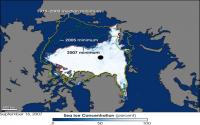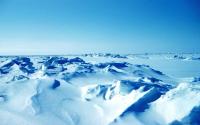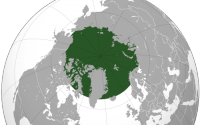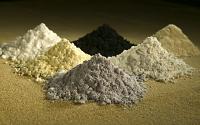News: By Source

The U.S. has lost a critical satellite from the Defense Meterological Satellite Program at a time when the Arctic, and other remote regions, are seeing rapid changes and scientists badly need these instruments to track them.
[ More ]
The Obama administration is reworking its plan to open the southern Atlantic Coast to offshore oil exploration because of strong opposition from the Pentagon, which says the activity could hurt military maneuvers and interfere with missile tests the Navy relies on to protect the coast.
[ More ]
One reason China may be so intent on controlling the South China Seas is that it needs the space for its growing underseas submarine fleet to adequately protect its nuclear deterrent and correct the strategic imbalance with the United States.
[ More ]
The United Nations’ top climate official took a subtle poke at the Obama administration on Wednesday over its decision to conditionally allow oil exploration off Alaska’s coast, suggesting that the Arctic’s oil and gas should stay underground.
[ More ]
A new study, just out in the Proceedings of the National Academy of Sciences, finds that as the Arctic Ocean warms and loses its sea ice cover, populations of phytoplankton will boom. This will, in turn, further amplify warming by 20 percent in a region that’s already heating up twice as fast as the rest of the planet.
[ More ]
Synthesizing much past academy work on the Arctic region, a new report from the National Academy of Sciences reports on the many ways that changes in the Arctic will reverberate well beyond it and, in some cases, have planet wide consequences.
[ More ]
The author points to the risk of a runaway greenhouse reaction as Arctic permafrost begins to melt, releasing trapped methane and accelerating the rate of global warming globally in a dangerous feedback loop.
[ More ]
Russian leaders now primarily see the Arctic as a potential source of economic growth for the country, both as a strategic resource base for the future and a potential maritime trade route.
[ More ]
A huge chunk of modern-day technology, from hybrid cars to iPhones to flat-screen TVs to radiation screens, use dozens of different metals and alloys. What would happen if we run short of any of these valuable metals? Say there's a war. Or unrest in a crucial mining region. Or China decides to lock up its strontium deposits. Could we easily come up with substitutes? Or is modern society vulnerable to a materials shortage?
[ More ]
A new study finds little evidence to support the idea that the plummeting Arctic sea ice has meaningfully changed our weather patterns. The research, published today in Geophysical Research Letters, says links between declining Arctic sea ice and extreme weather are “an artifact of the methodology” and not real.
[ More ]